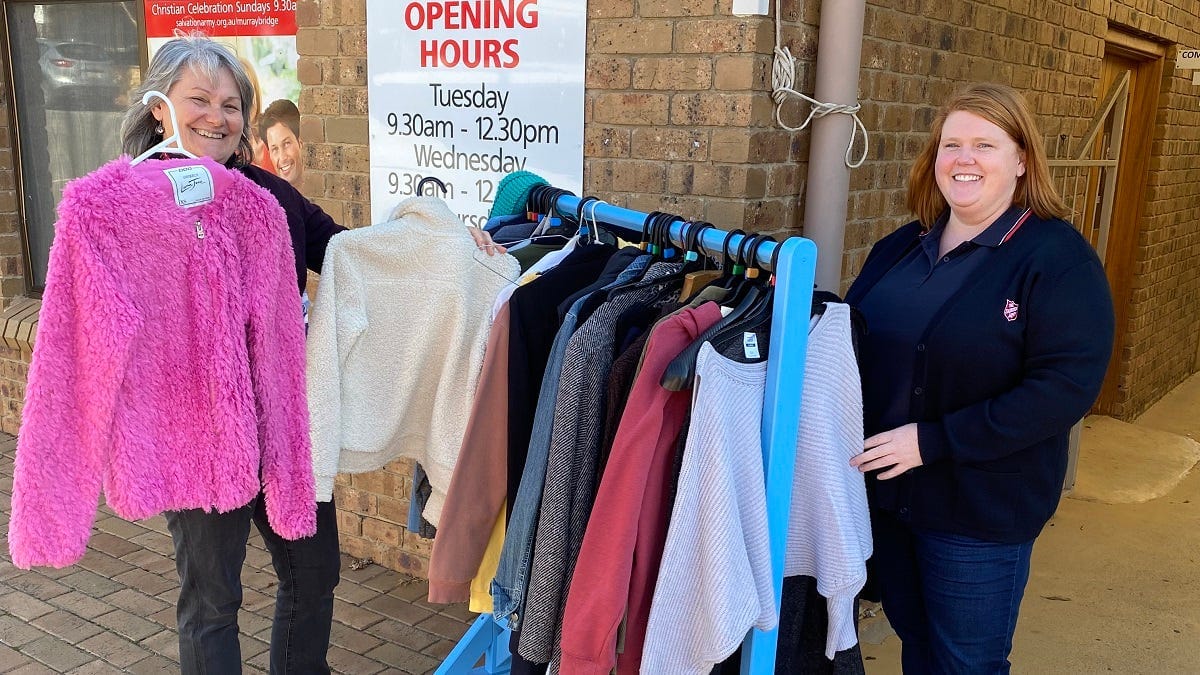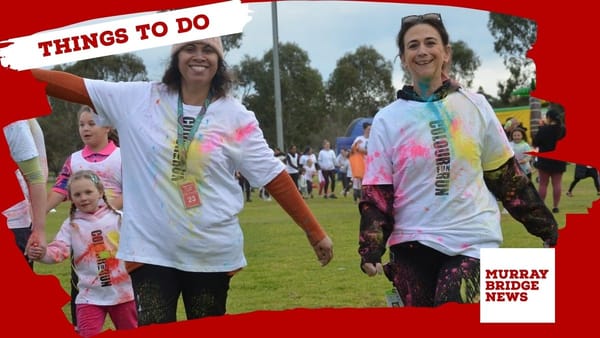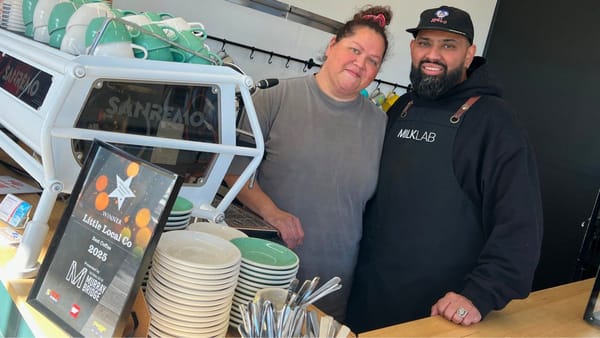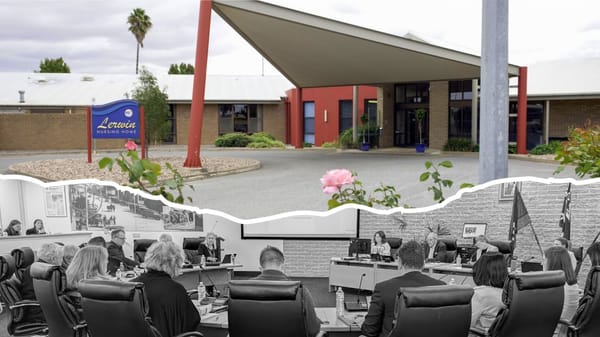Beddown turns public spaces into sleeping quarters – could the idea work in Murray Bridge?
Since its inception, a Queensland non-profit organisation has made an impression on community sector workers nationwide, including Janet Emmins.

This post about a community cause is free to read. Please help Murray Bridge News tell more local stories by subscribing.

A Murray Bridge woman has been inspired to help reduce homelessness in the region by an initiative in Queensland.
Murray Bridge Salvation Army team leader Janet Emmins said she had been watching the news one day when she learnt about Beddown.
The Brisbane-based not-for-profit organisation takes empty, vacant or dormant infrastructure and converts it into pop-up accommodation at night.
“It would be good to explore if this could work in our community,” Ms Emmins said.
“Service groups and organisations in Murray Bridge have in the past had positive outcomes regarding the roll-out of services that helped the most vulnerable residents.”

Prior to being a team leader, Ms Emmins was a financial counsellor for seven years with the Salvation Army.
Throughout her time at the Salvos, she noticed that the issue of homelessness in Murray Bridge had steadily worsened.
“(There has been) an increase in the number of clients who do not have a place to call home, an increase in clients sharing their struggles to find housing and the impact this has had on them and their families,” Ms Emmins said.
To help, the Salvos have set up a coat rack where locals can take or leave spare clothing; and issue food packs to the homeless than can last up to four days, with foods that are non-perishable and do not require heating.
Murray Bridge Salvation Army corps officer Renae Phillips said the Connect meal the charity offered twice a month also helped provide comfort to the needy.
“In partnership with multiple service clubs in town, the Salvos are able to provide a place where all people are welcome to come and connect with one another over a warm meal,” Lieutenant Phillips said.
“It’s about food and community, as social isolation increases.”
The Salvos do not have plans to replicate the Beddown program in Murray Bridge, but Ms Emmins personally hoped the outside-the-box thinking might inspire local solutions.
Beddown turns underused public spaces into safe sleeping quarters
According to the Australian Bureau of Statistics, not only are more than 116,000 people in Australia currently homeless, almost 9000 sleep rough every night and hundreds of people die every year as a result of being homeless.
Beddown founder Norm McGillivray said this reality was “unacceptable”.
“I had to do something about it, but I did not want to create a replica of other services; it had to be different and have a meaningful impact,” he said.

Beddown aims to provide safety, shelter and security for homeless people.
“We refer to them as our guests … we treat them like people, and try to give them pathways that lead to longer term solutions,” he said.
He said Beddown’s collaboration with other organisations and services improved the quality of the experience it could offer.
“They provide nurses, doctors, dentists, new clothes, food … it is all about restoring dignity, respect and confidence in our guests,” he said.
“It’s so important to get a good night’s sleep … sleep deprivation can lead to so many physical and mental health conditions.”

Mr McGillivray said homelessness was an issue that was close to his heart.
His father, a carpenter, found himself out of work after suffering a stroke in his early 30s; he wound up divorced from Mr McGillivray’s mother, became homeless and died at 42.
To really understand what people like his father had to endure, Mr McGillivray grabbed a sleeping bag and spent a night roughing it.
“I slept on the concrete … sleeping on a bench was a bit of an upgrade but it still was not good,” he said.
“When you do that, you understand that the human body has evolved to a degree that it cannot cope with those conditions.
“The brutality of it … it’s a form of torture on an existential scale.”

Enough was enough, he said.
“In Australia, the average life expectancy of someone who lives on the streets is 47 years,” he said.
“My dad died nearly 40 years ago … despite all the technological and medical advancements that have been developed since then, the needle has not moved much.”
- Get help: Contact the Homelessness Gateway on 1800 003 308; contact AC Care by visiting 29 Bridge Street, Murray Bridge, calling 1300 AC CARE or going to www.accare.org.au; or access emergency relief at Murray Bridge Community Centre on Beatty Terrace, Vinnies on Second Street, Teen Challenge on Marchand Street, the Salvation Army on First Street, the ADRA community pantry on Standen Street, or the Hub on Darling Avenue.

Need help?96.6KB ∙ PDF fileDownloadDownload
Clarification: A sentence which inaccurately paraphrased Mr McGillivray was removed from this post at his request.
You can help keep local stories like this one free for everyone to read. Subscribe to Murray Bridge News today and support your independent, locally owned news service, plus get access to exclusive stories you won’t find anywhere else, from just $5 a month.
Beddown: https://beddown.org.au/





